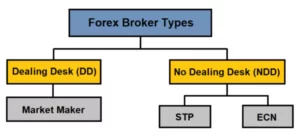The slow adoption of decentralized currencies demonstrates that stockholders are still wary of the issues commonly associated with the market. Increased volatility, lack of transparent rules, and regulatory compliance problems put individuals and organizations off investing in the booming industry. A crypto prime brokerage is a new model that opens a pathway to a steady capital inflow. Designed for institutions interested in an opportunity to enter the market, it allows them to navigate the changing environment. In this article, we will explore how such finance service providers build trust in distributed assets and ensure the safety of high capital volumes.
What Is A Crypto Prime Brokerage?
Prime brokerages are business models investors use to facilitate order finalization and build capital. They lend assets to hedge funds and other investors, allowing large financial organizations to scale up operations and maximize returns. Such intermediary services are typically provided by large investment banks, helping clients navigate complex markets and diminish risks related to the usage of decentralized assets. Deploying them facilitates cash management, trade clearing, and other operations.
A reliable crypto prime brokerage provides various services to organizations interested in cryptocurrencies.
- Trading and execution: As digital asset prices are prone to sudden changes, large institutions need professional assistance to avoid losing money due to high volatility. Implementing time-tested strategies, brokerages allow clients to access a range of markets without exposing themselves to significant risks.
- Crypto liquidity: As some assets have small trading volumes, investors may face issues when trying to convert tokenized currencies. Prime brokerages facilitate accessing large liquidity pools.
- Custodial services: Stockholders are wary of crypto, fearing for the safety of their stored intangible goods, so they contact intermediaries that guarantee secure storage.
- Compliance: As regulators established convoluted rules to control crypto markets and make them safer, brokerages utilize pro-level reporting tools and ensure full FCA compliance, dissipating clients’ concerns.
- Risk minimization: Effective strategies devised to proactively address possible issues allow financial institutions to prevent losses and increase profits for firms.
Even though smart order routing (SOR) may be appealing to some traders who want to exploit the best trade opportunities, the lack of transparency regarding user data puts off many organizations.
In addition, while using a decentralised exchange (DEX) may be hazardous for large ventures, entrusting funds to authoritative financial intermediaries allows them to stop worrying about liquidity and other related risks. The FIX API protocol utilized by prime brokerages facilitates the safe exchange of financial information and ensures high data integrity.


Turnkey Brokerage Solution For Your Business
Get the most profitable fully licensed fx/crypto brokerage software or ready-to-operate business in 48 hours. Best-in-class web & mobile trading platforms, sales-driven CRM, full integration with MT4/5, and 150+ payment providers.
Comparing TradFi and Crypto Prime
In the traditional financial (TradFi) industry, transactions are facilitated by banks, which results in high fees and causes payment delays. The emergence of decentralized finance (DeFi) opened a wealth of possibilities for investors who no longer needed to rely on banks and governmental organizations.
Prime brokerage is a TradFi asset management practice that gained a new meaning after the adoption of DeFi solutions. Blockchain technology allows for validating peer-to-peer transactions. Utilizing it, traders finalize operations without cooperating with central authorities.
Unlike TradFi, DeFi is more open to investors regardless of their backgrounds. A cryptocurrency prime brokerage provides services to all organizations that meet specific requirements and provide collateral. At the same time, similar TradFi services are available only to those who undergo strict checking procedures and submit mistake-free financial statements.

Joining DeFi platforms is easy, while TradFi markets require clients to undergo strict verification procedures to meet KYC/AML regulations. A typical TradFi prime brokerage allows organizations to engage in netting and access a larger balance sheet to maximize returns. Besides offering leverage, the intermediary organizations facilitate trade executions and provide research and consultancy services.
A crypto prime broker charges fees for assisting clients in streamlining their operations. The crypto industry still suffers from slow adoption. Low liquidity and infrastructural issues make it challenging for brokerage services to operate. Due to capital scarcity and the small industry size, hedge funds are wary of working with intermediaries that cannot provide high leverage.
Prime brokers dealing with decentralized assets prioritize the following operations:
- Order routing;
- Lending;
- Custody services.
TradFi still offers more brokerage opportunities, as the traditional financial industry does not have to deal with challenges plaguing decentralized infrastructure. The existence of many independent exchange platforms makes it arduous to compare similar assets.
Crypto Prime Brokerage Market Landscape
The industry has rapidly changed recently, as hedge funds started to gradually warm up to decentralized currencies. Most institutional investors already hold crypto, and Bitcoin ETFs are now available in 60% of large portfolios in the US.
Nevertheless, the market is still characterized by increased instability, which explains why large organizations want to find a centralized service to expedite trade execution, facilitate clearing, and resolve liquidity concerns. Brokerage providers offer trusted services, which allows them to gain the confidence of their clients.
While becoming a new source of liquidity, prime brokerages working with cryptocurrencies may expose their clientele to potential hazards. They opt for low-risk strategies, but this choice may result in decreased returns. Liquidity aggregation through brokerages may result in higher fees, making it difficult for small organizations to leverage low fees on centralized exchange platforms.
Crypto Prime Brokerage Issues
Even though the cryptocurrency industry has witnessed the appearance of the first brokerage service providers, the TradFi market is more mature and offers a choice of traditional securities. Its appeal to large investors lies in the fact that it has more well-established prime trading organizations, thus enabling them to diminish risks and ensure stable capital growth.
Multiple obstacles related to prime brokerage operations fuel the mistrust in the DeFi market:
- Liquidity issues: Decentralized markets have low liquidity, making it laborious and time-consuming to find a trusted liquidity source. A limited choice of prime brokerages that specialize in crypto assets makes it challenging for large institutional players to operate large amounts of capital.
- Convoluted technology: Major investors believe that blockchain technology requires improvement before it gets adopted on a large scale. The development of trusted automated trade execution tools may expedite the acceptance of innovative solutions allowing to buy and sell any digital asset without any risks.
- Centralization: Many brokerages still rely on traditional governance and asset optimization practices, which may further slow down cryptocurrency adoption.
Market leaders should discover new ways to secure investors’ trust and maximize gains without exposing them to financial risks.
Providing access to higher liquidity, a crypto prime brokerage becomes a reliable partner for institutions seeking to avoid the perils associated with distributed ledgers. Offering a secure way to store assets and consulting clients on possible ways of solving technical problems, such market players provide efficient solutions to ensure capital growth. Hedge funds benefit from ordering bundle services, as working with a trusted organization allows them to improve their financial indicators, execute trades, manage payables and receivables, and make fact-based strategic decisions.






